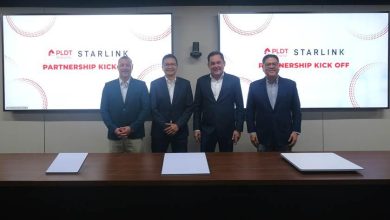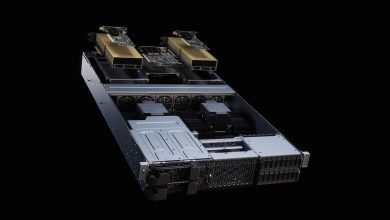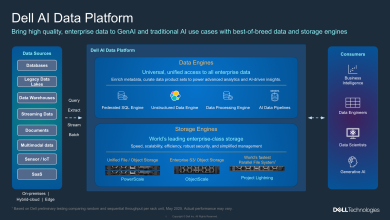MongoDB Strengthens Foundation for AI Applications with Product Innovations and Expanded Partner Ecosystem
Introducing Context Awareness, Setting New Accuracy Benchmarks, Expanding AI Frameworks, and Enhancing Agentic Evaluation at Industry-Leading Price Performance
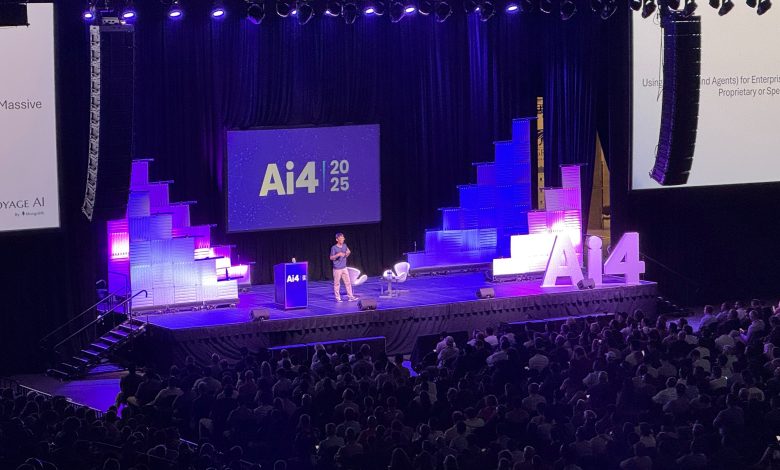
MongoDB, Inc. at Ai4 announced a range of product innovations and Artificial Intelligence (AI) partner ecosystem expansions that make it faster and easier for customers to build accurate, trustworthy, and reliable AI applications at scale. By providing industry-leading embedding models and a fully integrated, AI-ready data platform—and by assembling a world-class ecosystem of AI partners—MongoDB is giving organisations everywhere the tools to deliver reliable, performant, cost-effective AI.
Organisations recognise the business potential of AI. But according to the 2025 Gartner Generative and Agentic AI in Enterprise Applications Survey, 68% of IT leaders felt that they struggled to keep up with the rapid pace at which gen AI tools are rolled out, and 37% agreed that their application vendors drive their enterprise application gen AI strategy. Too many organisations are stuck in the messy middle with their AI implementation, seeing some benefits but not enough to warrant wider adoption.
Businesses express that this gap in AI adoption—a barrier for developers and enterprises alike—is due to the complexity of the AI stack, the importance and challenge of achieving accuracy for mission-critical applications, and price-performance concerns that emerge at scale. To address these issues, MongoDB continues to invest in streamlining the AI stack and introducing more performant, more cost-effective models. Customers can integrate Voyage AI’s latest embedding and reranking models with their MongoDB database infrastructure. MongoDB has also increased its interoperability with industry-leading AI frameworks—by launching the MongoDB MCP Server to give agents access to tools and data, and by expanding its comprehensive AI partner ecosystem to give developers more choice.
These capabilities are fuelling substantial momentum among developers building next-generation AI applications. Enterprise AI adopters like Vonage, LGU+, and The Financial Times—plus approximately 8,000 startups, including the timekeeping startup Laurel, and Mercor, which uses AI to match talent with opportunities—have chosen MongoDB to help build their AI projects in just the past 18 months. Meanwhile, more than 200,000 new developers register for MongoDB Atlas every month.
“Databases are more central than ever to the technology stack in the age of AI. Modern AI applications require a database that combines advanced capabilities—like integrated vector search and best-in-class AI models—to unlock meaningful insights from all forms of data (structure, unstructured), all while streamlining the stack,” said Andrew Davidson, SVP of Products at MongoDB. “These systems also demand scalability, security, and flexibility to support production applications as they evolve and as usage grows. By consolidating the AI data stack and by building a cutting-edge AI ecosystem, we’re giving developers the tools they need to build and deploy trustworthy, innovative AI solutions faster than ever before.”
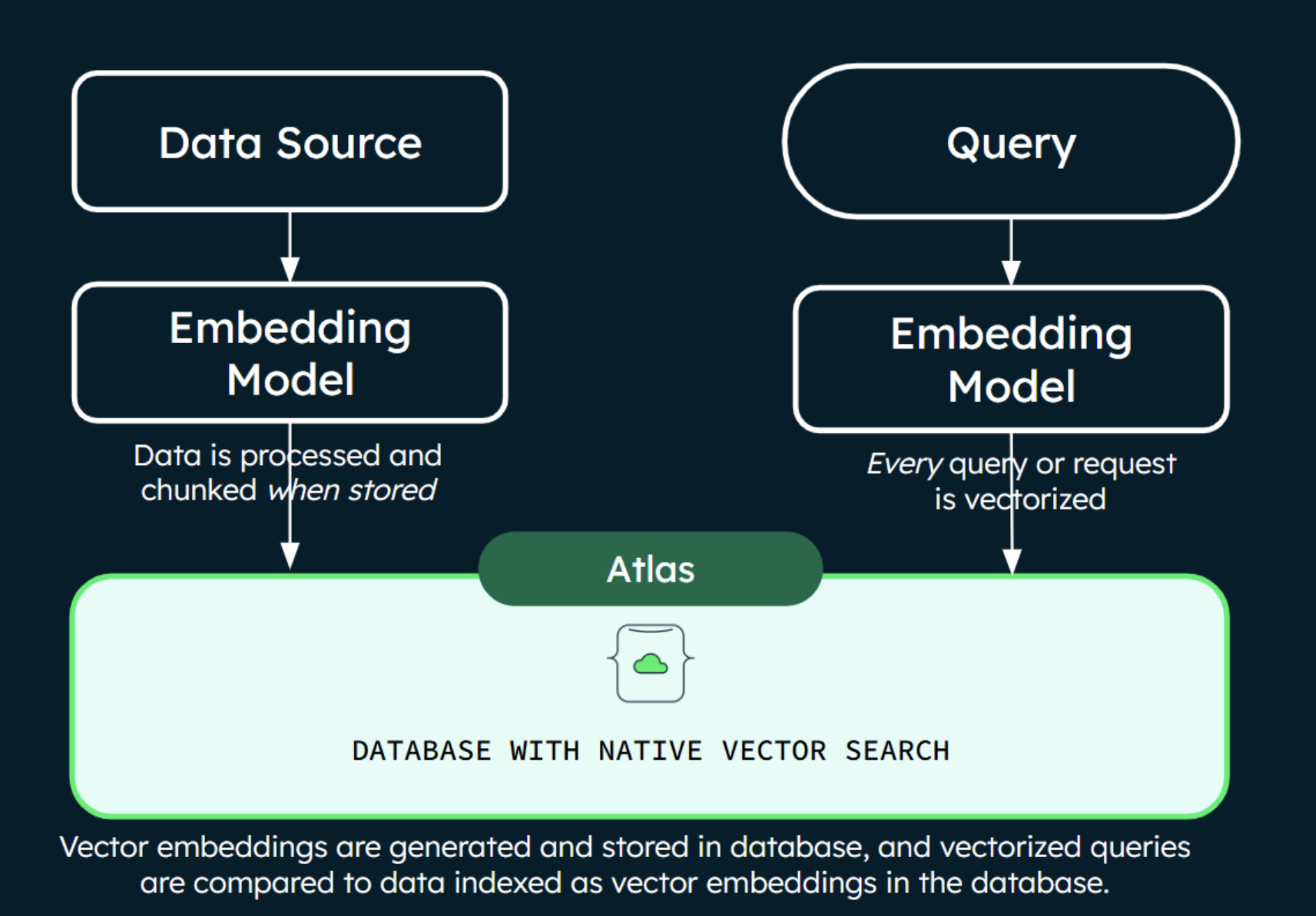
Accelerating AI Innovation with Enhanced Product Capabilities
Voyage AI by MongoDB recently introduced industry-leading embedding models designed to unleash new levels of AI accuracy at a lower cost:
- Context-aware embeddings for better retrieval: The new voyage-context-3 model brings a breakthrough in AI accuracy and efficiency. It captures the full document context—no metadata hacks, LLM summaries, or pipeline gymnastics needed—delivering more relevant results and reducing sensitivity to chunk size. It works as a drop-in replacement for standard embeddings in RAG applications.
- New highs in model performance: The latest general-purpose models, voyage-3.5 and voyage-3.5-lite, raise the bar on retrieval quality, delivering industry-topping accuracy and price-performance.
- Instruction-following reranking for improved accuracy: With rerank-2.5 and rerank-2.5-lite, developers can now guide the reranking process using instructions, unlocking greater retrieval accuracy. These models outperform competitors across a comprehensive set of benchmarks.
MongoDB also recently introduced the MongoDB Model Context Protocol (MCP) Server in public preview. This server standardises connecting MongoDB deployments directly to popular tools like GitHub CoPilot in Visual Studio Code, Anthropic’s Claude, Cursor, and Windsurf—allowing developers to use natural language to interact with data and manage database operations—and streamlines AI-powered application development on MongoDB, accelerating workflows, boosting productivity, and reducing time to market.
Since launching in public preview, the MongoDB MCP Server has rapidly grown in popularity, with thousands of users building on MongoDB every week. MongoDB has also seen significant interest from large enterprise customers looking to incorporate MCP as part of their agentic application stack.
“Many organisations struggle to scale AI because the models themselves aren’t up to the task. They lack the accuracy needed to delight customers, are often complex to fine-tune and integrate, and become too expensive at scale,” said Fred Roma, SVP of Engineering at MongoDB. “The quality of your embedding and reranking models is often the difference between a promising prototype and an AI application that delivers meaningful results in production. That’s why we’ve focused on building models that perform better, cost less, and are easier to use—so developers can bring their AI applications into the real world and scale adoption.”
“As more enterprises deploy and scale AI applications and agents, the demand for accurate outputs and reduced latency keeps increasing,” said Jason Andersen, Vice President and Principal Analyst at Moor Insights and Strategy. “By thoughtfully unifying the AI data stack with integrated advanced vector search and embedding capabilities in their core database platform, MongoDB is taking on these challenges while also reducing complexity for developers.”
Expanding the MongoDB AI Ecosystem
MongoDB has also expanded its AI partner ecosystem to help customers build and deploy AI applications faster:
- Enhanced evaluation capabilities: Galileo, a leading AI reliability and observability platform, is now a member of the MongoDB partner ecosystem, which is designed to give customers flexibility and choice. Galileo enables reliable deployment of AI applications and agents built on MongoDB, with continuous evaluations and monitoring.
- Resilient, scalable AI applications: Temporal, a leading open-source Durable Execution platform is now also a member of the MongoDB partner ecosystem. Temporal enables developers to orchestrate reliable AI use cases built on MongoDB, including agents, RAG, and context engineering pipelines that manage and serve dynamic, structured context at runtime. With Temporal’s Durable Execution, developers donot need to write plumbing code for resilience or scale. AI applications seamlessly recover across failures, reliably run for a long time, easily handle external interactions, and scale horizontally. Developers can also get visibility into every step of AI workflows to rapidly debug live issues. These partner capabilities significantly expand MongoDB’s AI ecosystem for developing AI applications.
- Streamlined AI workflows: MongoDB’s partnership with LangChain is redefining how developers build AI applications and agent-based systems by streamlining development and unlocking the value of customers’ real-time, proprietary data. Recent advancements include the introduction of GraphRAG with MongoDB Atlas, which enables greater transparency into the retrieval process, fostering trust and providing better explainability of LLMs responses. Another advancement is natural language querying on MongoDB, which allows agentic applications to directly interact with MongoDB data. These integrations empower developers to build reliable, sophisticated AI solutions—from advanced retrieval-augmented generation (RAG) systems to autonomous agents capable of querying data and performing advanced retrieval.

“As organisations bring AI applications and agents into production, accuracy and reliability are of paramount importance,” said Vikram Chatterji, CEO and Co-Founder of Galileo. “By formally joining MongoDB’s AI ecosystem, MongoDB and Galileo will now be able to better enable customers to deploy trustworthy AI applications that transform their businesses with less friction.”
“Building production-ready agentic AI means enabling systems to survive real-world reliability and scale challenges, consistently and without fail,” said Maxim Fateev, CTO at Temporal. “Through our partnership with MongoDB, Temporal empowers developers to orchestrate durable, horizontally scalable AI systems with confidence, ensuring engineering teams build applications their customers can count on.”
“As AI agents take on increasingly complex tasks, access to diverse, relevant data becomes essential,” said Harrison Chase, CEO and Co-Founder of LangChain. “Our integrations with MongoDB, including capabilities like GraphRAG and natural language querying, equip developers with the tools they need to build and deploy complex, future-proofed agentic AI applications grounded in relevant, trustworthy data.”

